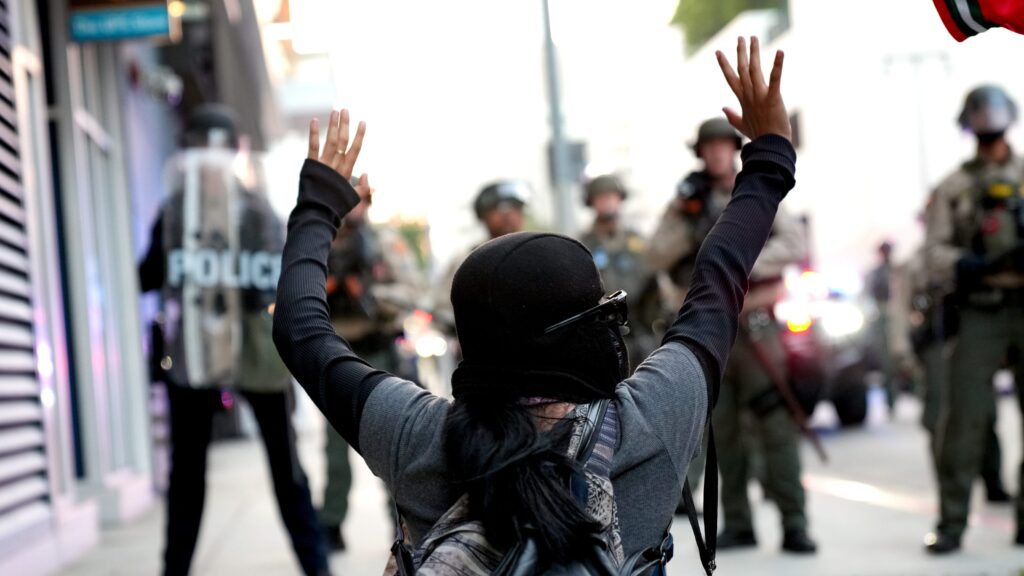President Donald Trump’s decision to deploy thousands of troops to Los Angeles in response to perceived threats of immigration protests has sparked intense backlash among residents and local officials. The deployment of 4,000 National Guard members and 700 Marines has raised concerns about federal overreach and the militarization of the city. Despite Trump’s claims that the troops are necessary due to overwhelmed local law enforcement, only a few have been on the streets.
The protests in Los Angeles, triggered by immigration enforcement actions, have at times turned violent, with incidents of arson and clashes with police reported. The demonstrations have drawn attention to the broader issues of immigration policy and federal intervention in local affairs. Critics argue that Trump’s actions are attempts to consolidate federal power and undermine state and local control.
The diverse population of Los Angeles, with a significant immigrant community, has been at the center of the protests. Many residents fear that the presence of military forces could escalate tensions and lead to further violence. The situation has also raised questions about the balance of power between federal and local authorities, as well as the implications for civil liberties and community relations.
As the protests continue and tensions remain high, the standoff between federal forces and local residents underscores the deep-seated concerns about immigration policy, law enforcement tactics, and the role of government in protecting civil rights. The situation in Los Angeles serves as a microcosm of broader issues facing the country and the challenges of balancing security with individual freedoms in a diverse and complex society.

